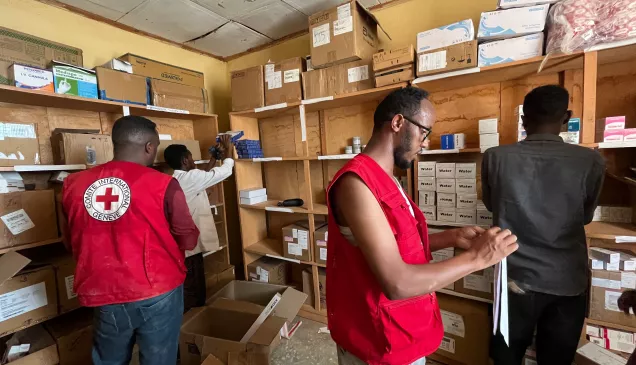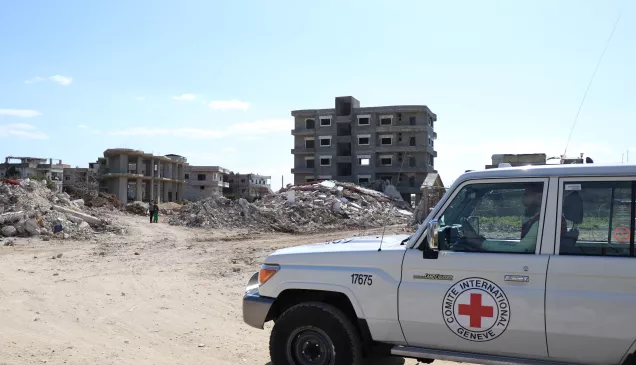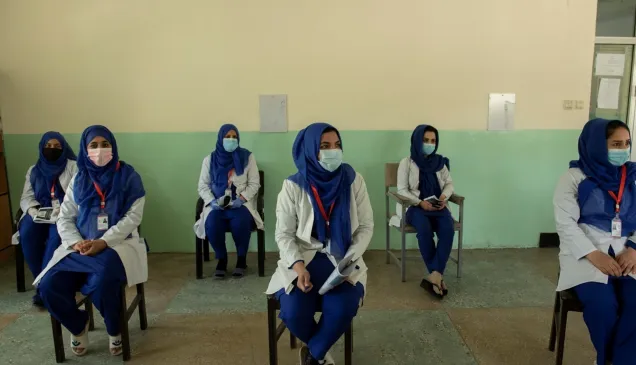Venezuela: Helping the health care workers who help us
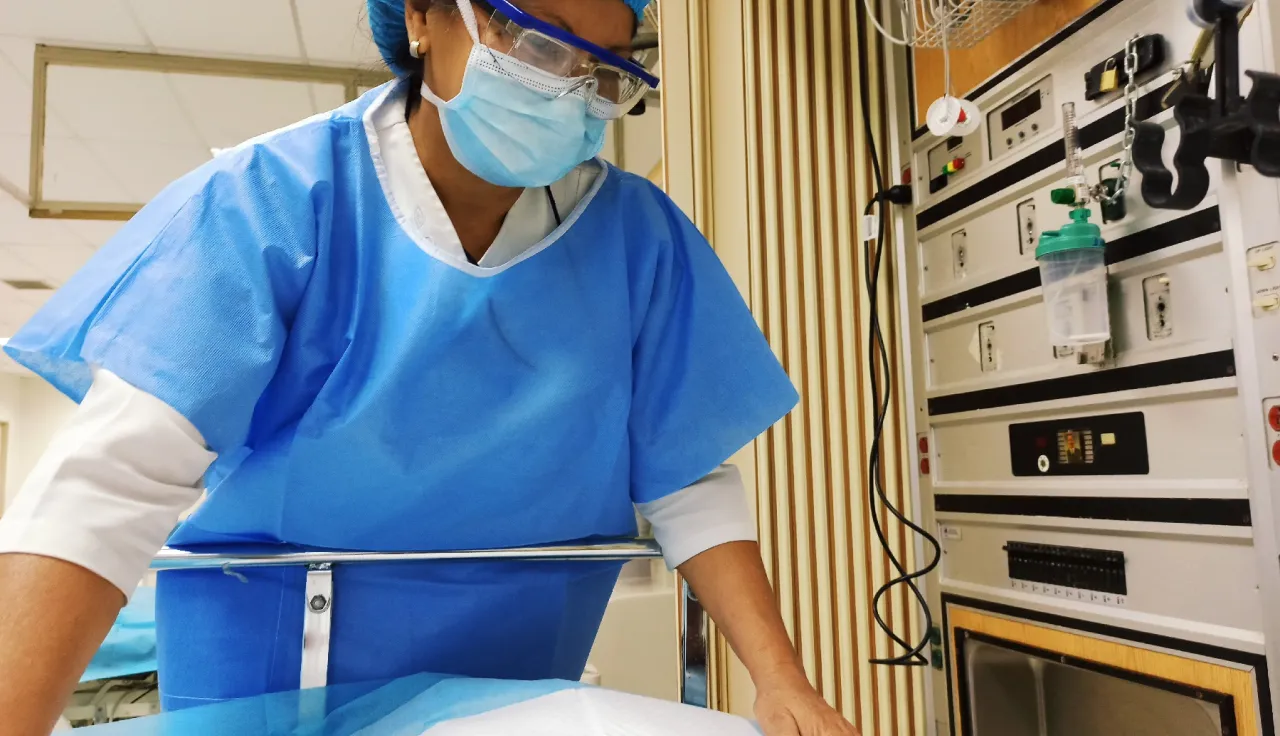
Maribel Ramírez has worked as an emergency room nurse at Domingo Luciani hospital for nine years and has never felt such a strong conviction to help save lives as she does now. "As health care workers we are committed to our patients and we took an oath to save the lives of all people," she says.
She is highly dedicated to her work in the triage area that has been set up in the hospital's emergency department since the beginning of the COVID-19 pandemic, where she looks after suspect COVID-19 patients.
Working in the hospital has created fear in her family; they are worried she could get infected and put her life and the lives of those around her at risk. She knows and insists that this risk is reduced by taking all possible protective measures and following recommended hygiene protocols. Her mission is to assist those in need and she has no intention to stop trying, even if sometimes that means having to be socially distant from loved ones and not being able to hug them when they get home.
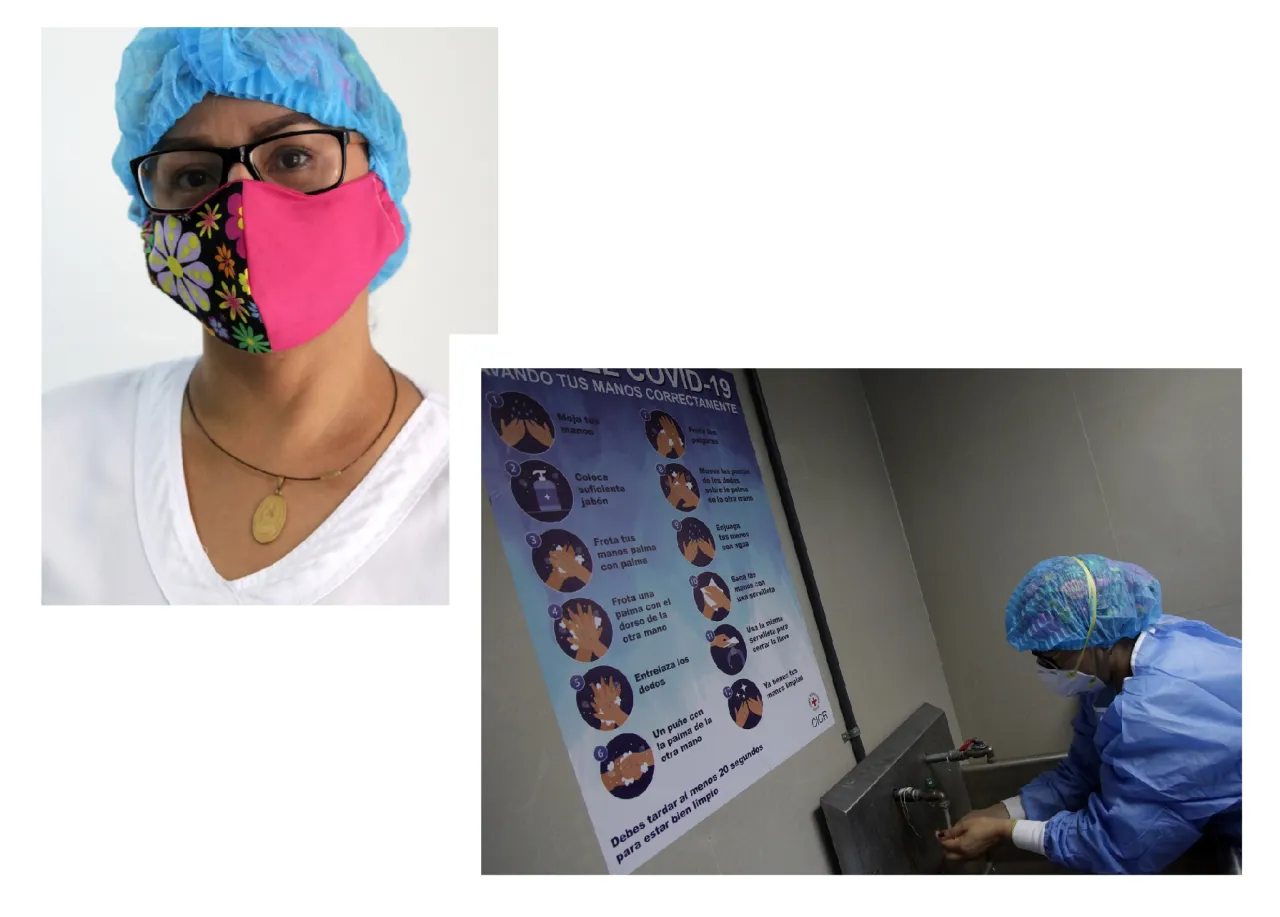
"Our families will always be afraid that we could get infected. However, I implement hygiene practices before entering my house and avoid close contact with my family members to protect them."
Maribel Ramirez, nurse at the Domingo Luciani Hospital
Health care staff face not only the risks of COVID-19, but also the pressure and fear of infecting other people and their own families. For this reason, it is essential they receive the support they need. In this regard, the International Committee of the Red Cross (ICRC), in cooperation with Venezuelan health authorities, has focused its action during this coronavirus pandemic in capacity building.
In Domingo Luciani, the ICRC's response involves training in protocols in the use of personal protective equipment, decontamination and cleaning, flow and triage of patients. All medical, nursing and support staff in the hospital are included in the training sessions. In addition, medical equipments have been repaired and donated. The hospital's infrastructure has been improved through repairs made to water outlets in the COVID-19 areas. Reinaldo Montilva, who is part of the ICRC's health team, commented that this will also improve the safety and environment in which the health professionals are working.
Hospital hygiene is essential during a pandemic. That is why the cleaning staff, using the necessary protection, supports doctors and nurses by keeping the areas clean and prepared, in order to keep both patients and health professionals safe in their work areas.
This is how Carmen Sanz, waitress at the Domingo Luciani hospital, understands it. With a smile that is visible under her face covering, she relates how proud she is of her role in this difficult situation. "I am convinced that the patients who come to the hospital deserve to be treated with the same affection and respect with which I treat my children," she says. "I know that my work is important because we must work for the health of all. Someone has to keep this area clean; my life depends on it. If I and others refuse to work how will we ever overcome this?"
"I know that my work is important because we must work for the health of all. Someone has to keep this area clean; my life depends on it. If I and the others refuse to work how will we ever overcome this?" she explains.
Carmen Sanz, waitress at the Domingo Luciani Hospital
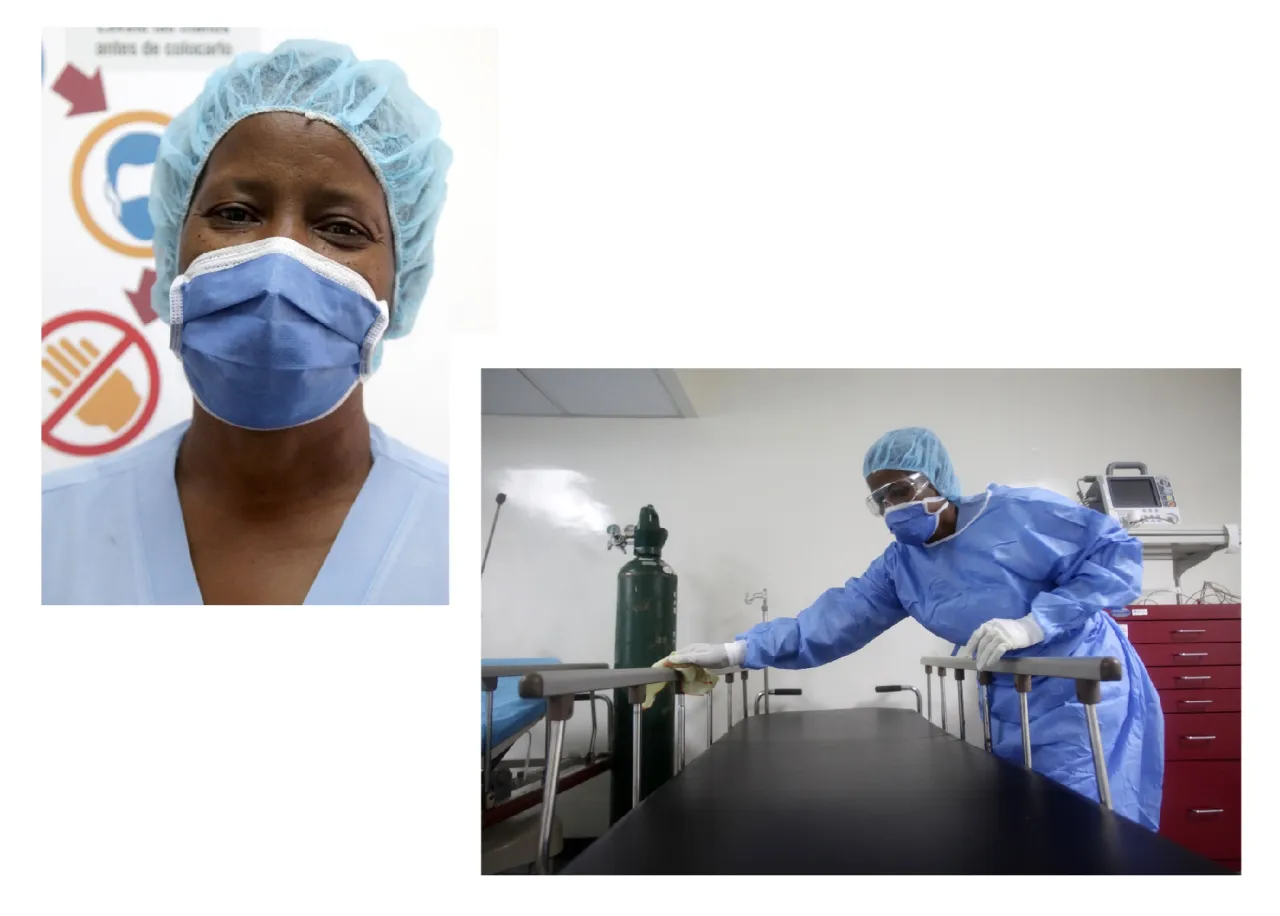
The goal and motivation for many Venezuelan health care workers is for their patients to leave the hospital healthy and happy, reunited with their loved ones. When we asked Dr Alejandro what his greatest inspiration was, he instantly smiled and answered that saving people's lives is precisely the reason he helps in the hospital's surgery department units.
Before the pandemic began, Alejandro had already taken the ICRC's training on how to care for multiple-trauma patients, which he found extremely helpful in his role as a resident doctor. He believes the training enhanced both his own and his colleagues' skills in emergency care.
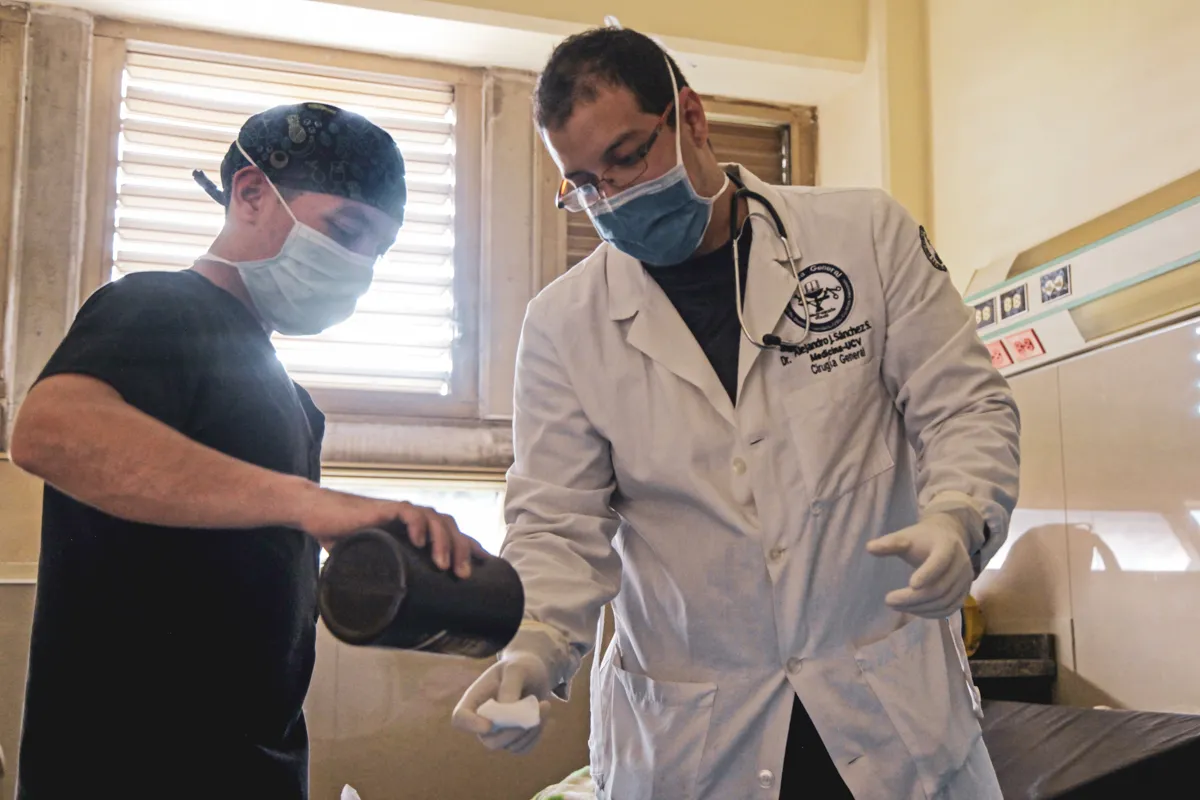
Between March and June 2020, the ICRC:
• Distributed 60 tonnes of medical supplies to eight hospitals, comprehensive diagnostic and outpatient centres in the country
• Renovated and installed 32 handwashing stations with water tanks to improve hygiene and cleanliness in order to keep these medical centres functioning properly.
• Trained 1,600 health professionals on general preventive measures, correct use of personal protective equipment, prevention and infection control throughout the country.

